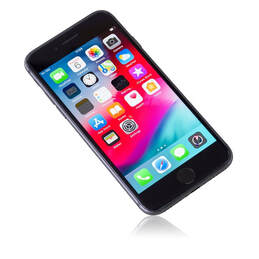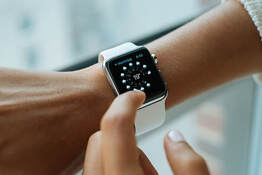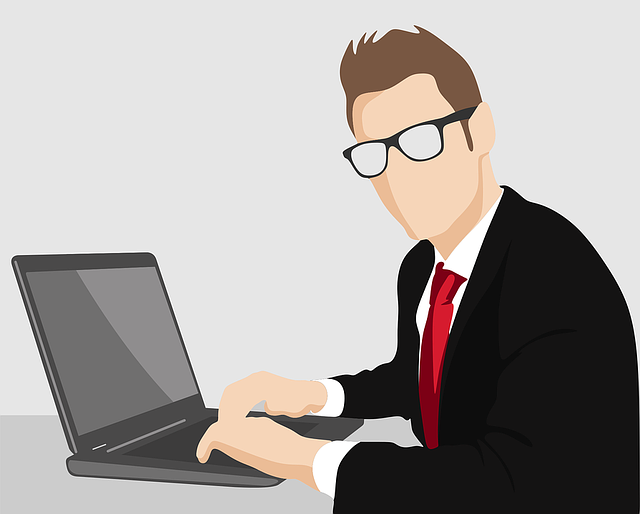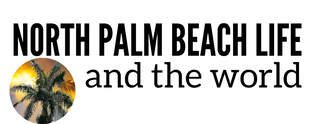 You hear it said "there's an app for everything." That's no small exaggeration. According to industry reports, there are currently close to nine million apps available worldwide, with most residing on Google Play Store (3.5 million) and the Apple App Store (1.6 million). In 2023, users downloaded almost 150 billion apps and games, a 3.9% increase over the previous year. Google Play had "113.2 billion downloads in 2023, iOS had 34.9 billion downloads." Worldwide, China recorded the most downloads, followed by India and the United States. Individually, the average American has 80 apps on their smartphone and "uses 9-10 apps per day and 30 per month." In fact, almost 85 percent of time we spend on smartphones is spent using apps. Need proof? My iPhone is happy to provide it. All I need to do is go to my Settings and choose "Screen Time." It will show me total time spent using my phone, including time spent on individual apps by day or week. It literally tracks and records every interaction I do on my device. My question is, "Do I really need to know?" Is it to shame me for spending more time on games than reading the news? Or just remind me of the hours I spend on a phone that I could have put to better use? I can't help but feel my phone is judging me. Of course, the biggest "self-help" use of apps has to be health and fitness. It's a trend that's been building for years. Check out this CNET report from several years back:  Nothing illustrates this more today than the Apple Watch. From Apple: "You can enable notifications from the Heart Rate app on your Apple Watch to alert you to high or low heart rates, as well as irregular heart rhythms that may be suggestive of atrial fibrillation (AFib). If you have already been diagnosed with AFib, you can turn on AFib History to see an estimate of how frequently your heart is in this arrhythmia. You can also turn on alerts for low cardio fitness." A benefit? To some, I'm sure. But if I had a constant readout of how my ticker's ticking, whatever the benefit would be offset by the stress of just knowing. Sometimes, ignorance truly is bliss. But wait -- not to worry, there's a app for stress, too. Again, from Apple: "Log your state of mind. In addition to offering opportunities to breathe mindfully and promote moments of reflection, the Mindfulness app can help you build emotional awareness and resilience by identifying your feelings. Just open the Mindfulness app, tap State of Mind, then log your momentary emotions and daily moods." I can imagine with all the logging and recording, you could easily lose sleep worrying if you missed or left something out. Before you ask, Apple has something for that, too: "Prioritize your sleep. With the Sleep app on Apple Watch, you can create a sleep schedule, set a sleep duration goal, and review your recent sleep history. You can even see estimates of how much time you spent in REM, Core, or Deep sleep, as well as when you might have woken up. While you sleep, Apple Watch also tracks metrics like blood oxygen, heart rate, time asleep, respiratory rate, and on Apple Watch Series 8 and Apple Watch Series 9, wrist temperature. To get started, open the Sleep app on your Apple Watch and follow the onscreen instructions. Then wear your watch to bed and Apple Watch does the rest." One can only imagine what features and functions we'll get with Apple Watch Series 20. There other examples as well, like the Bodymapp 3D body scanning app, which claims, "Body scanning has never been easier. You can measure and track your body composition and circumference measurements anywhere, anytime." No thanks -- if I want to be depressed I'll just look in the mirror. If you have a food obsession, there are apps that give you "calorie information from a food database or photo uploads of scanned food labels, which allow you to log and track your daily calorie consumption." That's a lot of work. Why not an app that auto-monitors your food intake and provides a Nutrition Report, a la Screen Time? I'm sure someone is working on that one.  Credit: Final Countdown Credit: Final Countdown Now, all of the above is well and good, but are you ready for a life expectancy app? Enter "Final Countdown," the app that predicts how long you may have to live. It provides "an estimate of your life expectancy based on official WHO data, scientific researches, your unique habits and lifestyle. The purpose of the app is to raise awareness of the time everyone is running out of. The shocking information, which is represented by a countdown clock is a powerful tool, that is capable of making the users think about their lifestyle and motivate the individuals to change it for the better. Try changing your profile settings, and see how much time there is left with different lifestyles!" Now I ask you: If something could really tell you, with accuracy, how long you have to live, would you want to know? Not me. I am very much a "carpe diem" kind of guy. Or as they say in the song, "The future's not our to see -- que sera, sera." Speaking of songs, the one app I wouldn't want to do without is Shazam, which, when activated, can "listen" to a song and give you the title and artist. It's amazing, and I'm sure Gomer Pyle would agree: |
AboutYes, I know it's spelled like "Jerry." No, I don't know why it's pronounced "Gary." Archives
May 2024
Categories |
- Home
- Cruise/Travel
- Gigi in the 561
- Blogs
- Video
-
Explore
- Snaps >
- Island Destinations
- October Odyssey >
- Pam - Traveling in Style
-
Road Trip!
>
- Road Trip! -- Tucumcari, New Mexico
- Road Trip! -- The Painted Desert
- Road Trip! - Sedona, Arizona
- Road Trip! - Sedona Wineries
- Road Trip! Tonto Natural Bridge State Park
- Road Trip! - Mogollon Rim
- Road Trip! - Verde Canyon Railroad
- Road Trip! - Jerome, Arizona
- Road Trip! - California
- Road Trip! - Palm Springs Celebrity Tour
- Road Trip! - Palm Springs Aerial Tramway
- Road Trip! - Festival in Palm Springs
- Road Trip! - Willcox, Arizona and Apple Annie's Orchard
- Road Trip! Willcox Wineries
- Road Trip! Chiricahua National Monument
- Road Trip! Tombstone, Arizona
- Tombstone, Part Two
- Road Trip! - Epilogue
-
Traveling With Joe
>
- Beartooth Highway
- North Cascades National Park
- A Visit to the Philippines
- Grand Canyon National Park
- Glacier National Park
- Yellowstone National Park
- Hiking in Bear Country
- Crater Lake National Park
- Albuquerque Balloon Fiesta
- The Kerrville Folk Festival
- Building Hope in the Rio Grande Valley
- Yellowstone Camping Tales
-
Unknown Yellowstone
>
- Unknown Yellowstone - Heart Lake
- Unknown Yellowstone - Summit Lake
- Unknown Yellowstone - Shoshone Lake
- Unknown Yellowstone - Grizzly Lake
- Unknown Yellowstone - Riddle Lake
- Unknown Yellowstone - Pelican Cone
- Unknown Yellowstone - Mt. Washburn
- Unknown Yellowstone - Specimen Ridge
- Unknown Yellowstone - Avalanche Peak
- Unknown Yellowstone - Divide Creek
- Contact
- Search
|
© COPYRIGHT 2024 ALL RIGHTS RESERVED.
|

 RSS Feed
RSS Feed
